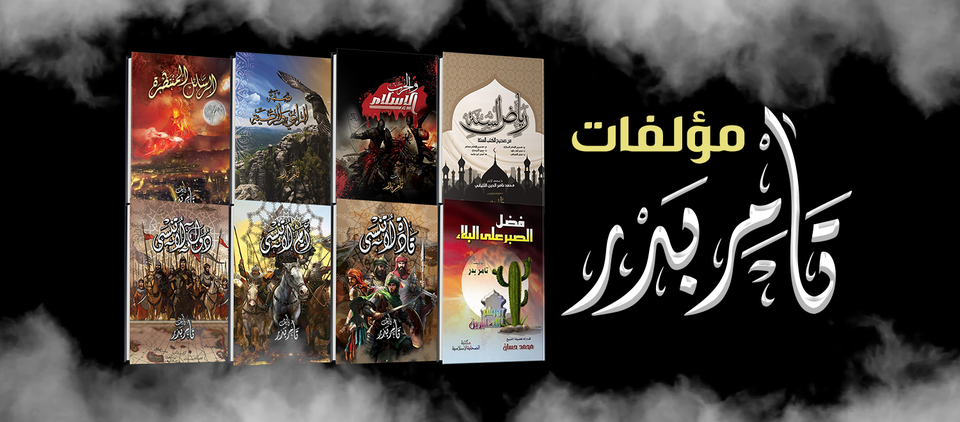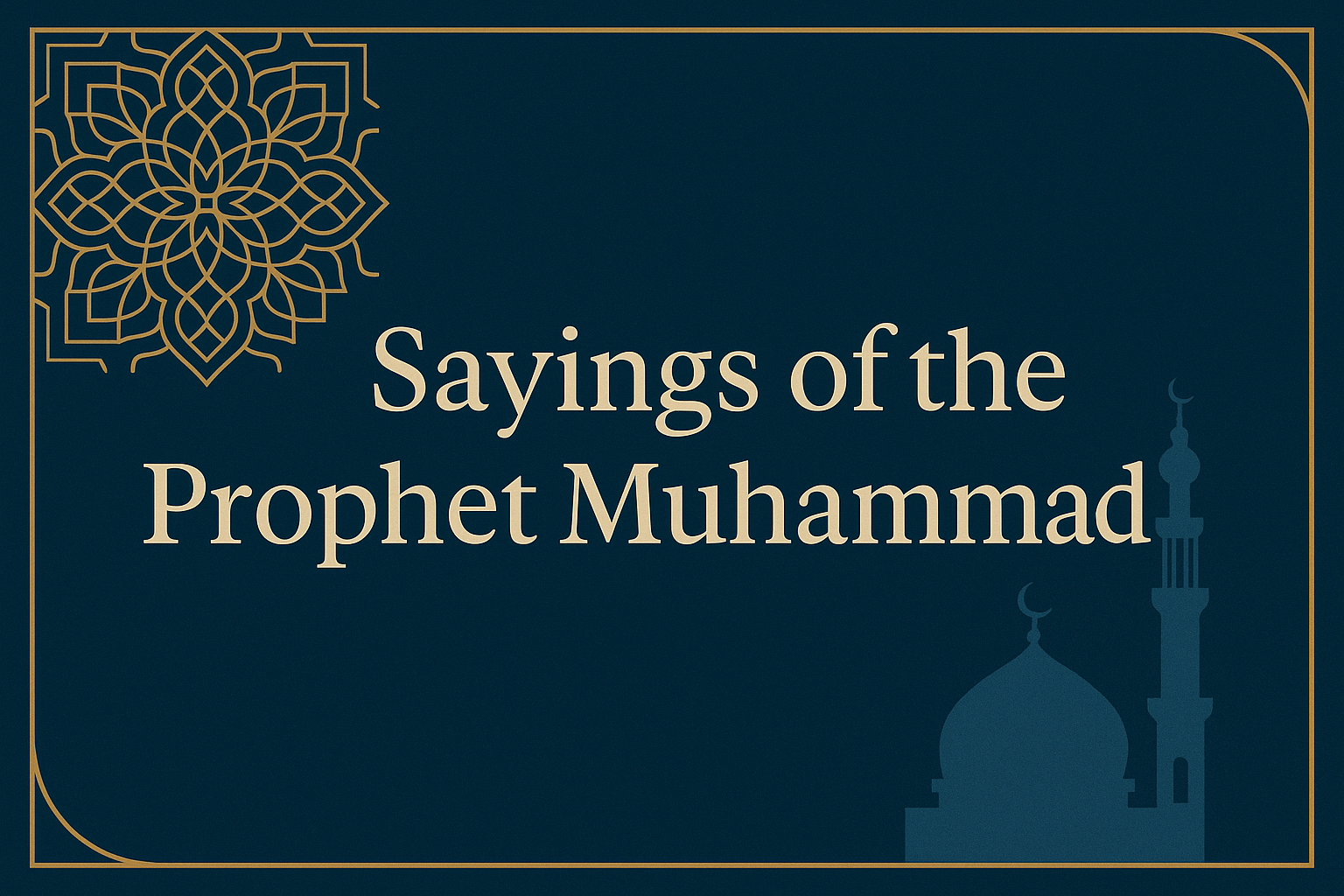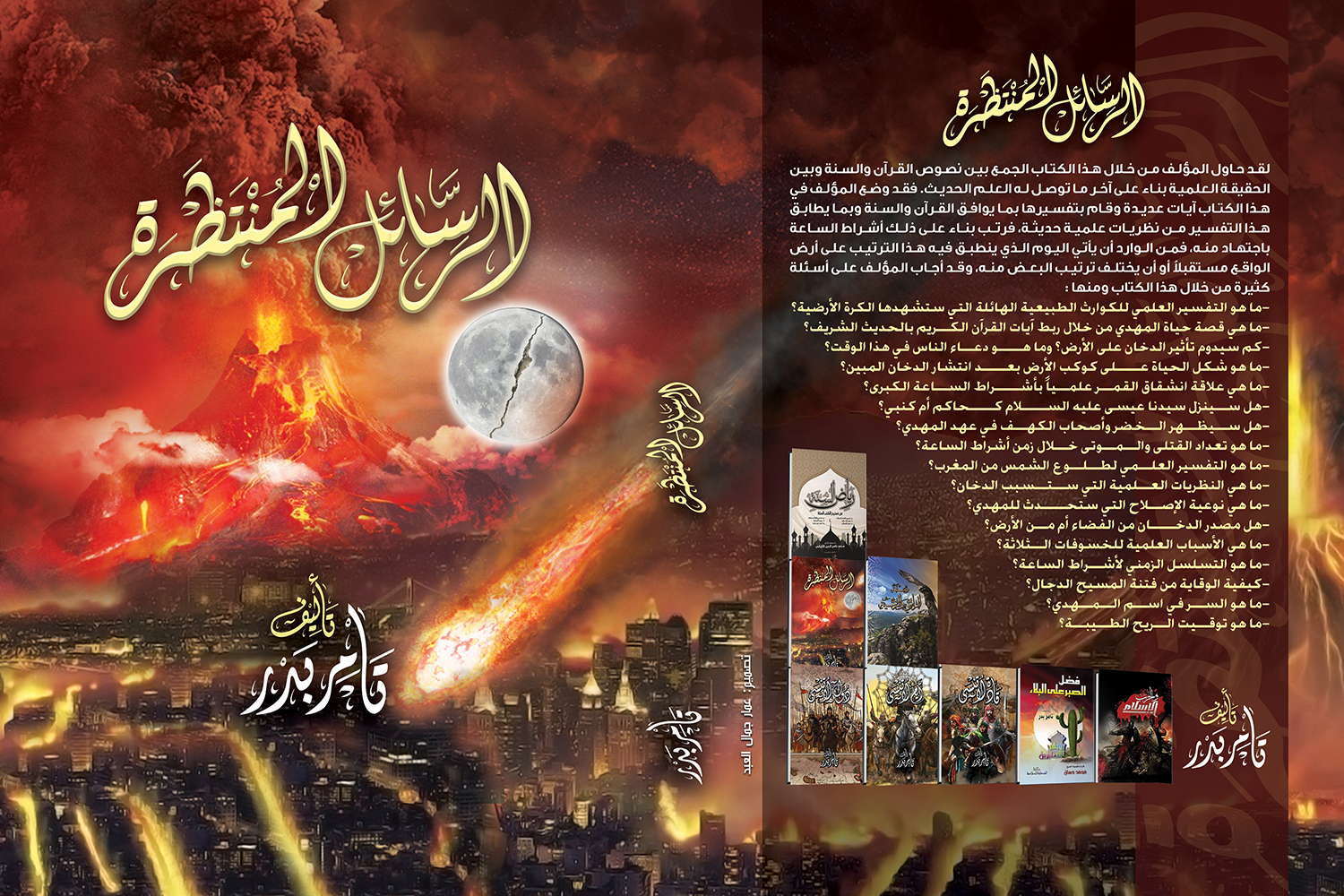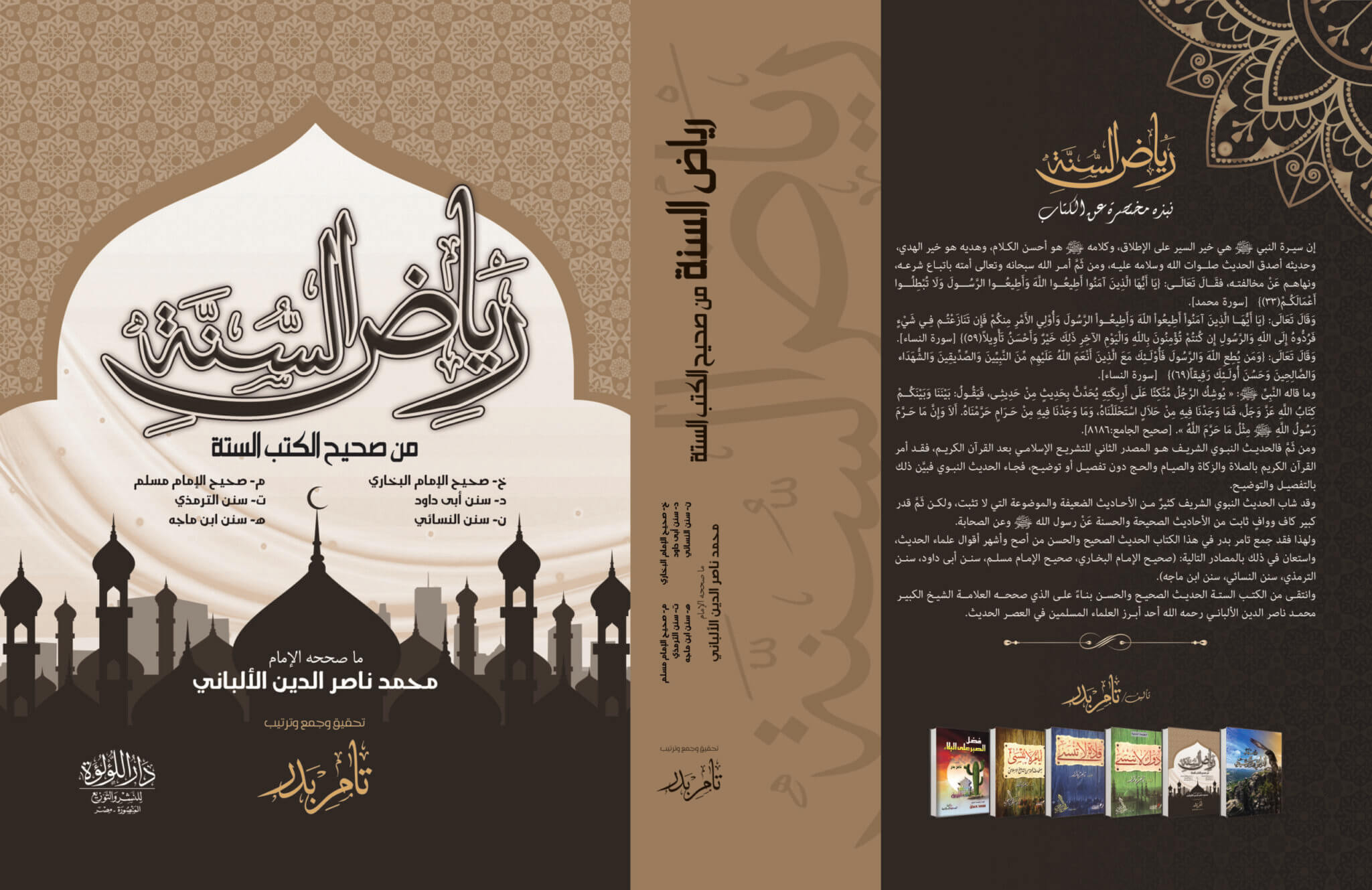
Tamer Badr
Welcome to Tamer Badr's website
This website aims to introduce non-Muslims to Islam around the world.
We endeavour to provide a clear, respectful and balanced presentation of Islam's beliefs, values and teachings, drawing on reliable sources and a spirit of mutual understanding.
Whether you're curious, a truth seeker, or seeking deeper knowledge, here you'll find articles, stories, and answers to frequently asked questions about:
- What is Islam?
- Who is Prophet Muhammad?
- What do Muslims believe in?
- What is the Quran?
- And much more.
Our mission is to build bridges of understanding ... page by page

🔠 Languages Available on the Website 🔠
 Arabic
Arabic
 English
English
 French
French
 Spanish
Spanish
 Portuguese
Portuguese
 German
German
 Italian
Italian
 Polish
Polish
 Swedish
Swedish
 Norwegian
Norwegian
 Finnish
Finnish
 Dutch
Dutch
 Danish
Danish
 Czech
Czech
 Slovak
Slovak
 Estonian
Estonian
 Latvian
Latvian
 Lithuanian
Lithuanian
 Russian
Russian
 Belarusian
Belarusian
 Ukrainian
Ukrainian
 Hungarian
Hungarian
 Bulgarian
Bulgarian
 Romanian
Romanian
 Serbian
Serbian
 Croatian
Croatian
 Bosnian
Bosnian
 Albanian
Albanian
 Greek
Greek
 Turkish
Turkish
 Hebrew
Hebrew
 Chinese
Chinese
 Japanese
Japanese
 Korean
Korean
 Indonesian
Indonesian
 Malay
Malay
 Vietnamese
Vietnamese
 Tagalog
Tagalog
 Thai
Thai
 Burmese
Burmese
 Khmer
Khmer
 Hindi
Hindi
 Urdu
Urdu
 Bengali
Bengali
 Persian
Persian
 Pashto
Pashto
 Kazakh
Kazakh
 Uzbek
Uzbek
 Armenian
Armenian
 Georgian
Georgian
 Tamil
Tamil
 Nepali
Nepali
 Sinhala
Sinhala
 Swahili
Swahili
 Amharic
Amharic
Authorship
On the intellectual level, Major Tamer Badr has eight books, as he is interested in studying religious, military, historical and political issues from an ijtihadist perspective. Most of the books he wrote were written before mid-2010 and were written and published in secret due to the sensitivity of his position as an officer in the armed forces and in order not to be accused of extremism at that time. All his books did not receive material profits from them, as he wrote and published them for the face of God Almighty, these books are:
1- The virtue of patience in affliction; presented by Sheikh Mohammed Hassan.
2- Unforgettable Days; presented by Dr Ragheb Al-Sarjani, which deals with the decisive battles in Islamic history.
3- Unforgettable Leaders; presented by Dr Ragheb Al-Sarjani, and deals with the most famous Muslim military leaders from the Prophet's era to the Ottoman Caliphate.
4- Unforgettable Countries; presented by Dr Ragheb Al-Sarjani, which deals with the most famous countries in Islamic history that defended Muslims and conquered countries.
5- The Character of the Shepherd and the Subject; this book deals with the relationship between the shepherd and the subject from the political point of view, and the duties and rights of both parties from the Islamic perspective.
6- Riyadh al-Sunnah from the authenticity of the six books; in this book, he has collected the authentic and good hadiths based on what Sheikh Muhammad Nasir al-Din al-Albani (may Allah have mercy on him) has authenticated.
7- Islam and War; this book deals with Islamic military doctrine.
8- The Awaited Messages; this book deals with the major signs of the Hour.


What is Islam?
We are here to open an honest, calm, and respectful window into Islam.
Welcome to you.
In this section we present a simplified and honest view of Islam - as it is, from its original sources, in a way that respects your mind and experience.
Our aim is to introduce Islam away from stereotypes, emphasising the human, spiritual and ethical aspects of the religion.
You'll find it here:
- A clear explanation of what Muslims believe
- About the Prophet Muhammad (PBUH) and his message
- Answers to Frequently Asked Questions
- Reliable resources for those looking to expand
We believe in calm dialogue and mutual respect, and you are always welcome, whatever your background or belief.

Life of Prophet Muhammad
Prophet Muhammad bin Abdullah, peace be upon him, is the Seal of the Prophets, sent by God to guide mankind to the path of monotheism, mercy and justice.
He was born in Mecca in 571 AD in an environment dominated by idolatry, and grew up with good morals, until God Almighty sent him a revelation at the age of forty, and the greatest journey of change in history began.
On this page, we take you on a tour through the stages of his blessed life: From his birth and upbringing, through the revelations, his call in Mecca, his migration to Medina, the building of the Islamic State, and his death.
Each stage of his life holds great lessons in patience, wisdom, compassion and leadership

Prophet Muhammad's sayings
This page highlights some of the sayings of the Prophet Muhammad (peace and blessings of Allah be upon him), but it is not exhaustive. The hadiths are many and varied, covering all areas of human life: from ethics and transactions, to compassion for animals, justice, the environment, the family, and more. The Prophet Muhammad left us with a rich legacy of wisdom and sermons that inspire hearts and appeal to human nature at every time and place.
On this page, we have collected a selection of these illuminating sayings to serve as a window to reflect on the message of the Holy Prophet, and to understand the values that Islam came with


Why they converted to Islam?
On this page, we highlight the stories of people from different backgrounds, cultures and religions who chose Islam with conviction after a journey of research and reflection.
These are not just personal anecdotes, but honest testimonies that express the profound change that Islam brought about in their hearts and minds, the questions they found answers to, and the tranquillity they felt after Islam.
Whether the story began with philosophical research, curiosity, or even after a touching human situation, the common denominator in these experiences is the light they found in Islam, and the certainty that replaced doubt.
We present these stories in multiple languages, in both written and visual formats, to inspire and introduce Islam through a living human experience.

Islam Question & Answer
In this section, we are pleased to introduce you to the religion of Islam as it is, from its original sources, away from misconceptions or stereotypes. Islam is not a religion specific to Arabs or a particular region of the world, but a universal message for all people, calling for monotheism, justice, peace and mercy.
Here you will find clear and simple articles that will explain it to you:
- What is Islam?
- Who is Prophet Muhammad (PBUH)?
- What do Muslims believe in?
- What is Islam's attitude towards women, science and life?
We only ask you to read with an open mind and a sincere heart to seek the truth

The miracle of the Qur'an
The Holy Qur'an is the eternal miracle of Islam, revealed by God to the Prophet Muhammad to guide the world and challenge humans with its eloquence, clarity and truths.
The Qur'an is characterised by multiple miraculous aspects, including:
- The rhetorical miracle: In his unique style, which the eloquent Arabs could not come up with anything like it.
- Scientific miracles: it includes accurate references to newly discovered scientific facts in fields such as embryology, astronomy, and oceans.
- Numerical miracles: The symmetry and repetition of words and numbers in astonishing ways that emphasise its perfection.
- The legislative miracle: Through an integrated system that balances spirit and body, truth and mercy.
- Psychological and social miracles: Its profound impact on hearts and societies since its revelation until today.
On this page, we take you on a journey to discover the facets of this miracle, in a simple, authoritative style, aimed at non-Muslims and all those who seek to understand the greatness of this unique book


Prophets in Islam
One of the basic principles of Islam is that all the prophets sent by God throughout history are messengers of truth and guidance, who came with a single call to worship God alone. Muslims believe in Abraham, Moses, Jesus, Noah, Joseph, David, Solomon and other prophets, revere and respect them, and consider disbelief in any of God's prophets to be a departure from faith.
The Holy Qur'an emphasises that Muhammad (peace be upon him) is not a new prophet with a new religion, but rather the conclusion of a series of prophets who came with the same core message: monotheism, justice and morality. Therefore, Islam does not exclude previous religions, but recognises their divine origin and calls for belief in all God's messengers without distinction.
This unique doctrine emphasises the universality of Islam and establishes bridges of mutual respect between followers of divine religions.

Prophet Jesus
The Prophet Isa, peace be upon him, occupies a great place in Islam, as he is one of the first of the Prophets, and is considered one of the greatest prophets sent by God to guide mankind. Muslims believe that Jesus was born from the Virgin Mary without a father, by a divine miracle, and that his birth was a sign of God's great signs.
Muslims believe that Jesus, peace be upon him, is the promised Messiah, and that he called his people to worship God alone, and that God supported him with remarkable miracles, such as raising the dead and healing the sick, with God's permission, and that he will return at the end of time to establish justice, break the cross and kill the Antichrist. They also believe that he was not crucified or killed, but that God raised him up, and that he will return at the end of time to establish justice, break the cross, and kill the Antichrist.
Islam honours Jesus and affirms that he is a noble prophet and slave of God, not a god or the son of a god. Islam also honours his mother, Maryam, who is given a unique place in the Holy Quran, and her name is mentioned more than once in the Book of Allah, and there is a surah named after her in the Quran.

Islamic Library
On this page, we offer you a comprehensive library of carefully selected e-books and videos aimed at introducing non-Muslims to Islam in a clear and accessible manner.
This content is designed to answer frequently asked questions, correct misconceptions, and provide an honest view of the teachings and purposes of Islam.
Whether you're looking to understand the basic tenets of Islam, or want to learn more about the Prophet Muhammad, the role of women in Islam, or the relationship between Islam and science, you'll find something here in multiple languages and a variety of formats


Tamer Badr
About him
Major Tamer Badr is a former officer in the Egyptian Armed Forces. He participated in the Egyptian revolution and had a role in the revolutionary movement that followed, where he expressed clear positions towards the political events that took place in the country.
Due to his political positions and his sit-in in Tahrir Square during the Mohamed Mahmoud events in November 2011 for 17 days, he was subjected to security persecution and then arrested in Tahrir Square by members of the Egyptian Military Intelligence, and was militarily tried and imprisoned for a year in Military Intelligence Prison and then Military Prison, and then retired early from military service in January 2015.
Tamer Badr presented new visions that sparked widespread debate in intellectual circles. In his book The Awaited Messages, he discussed the difference between a prophet and a messenger, and argued that the Prophet Muhammad is the Seal of the Prophets, as stated in the Holy Quran, but not necessarily the Seal of the Messengers. He based his argument on a range of Qur'anic evidence and hadiths that he believed supported his thesis, which led to a great controversy between his supporters and opponents, especially in traditional religious circles.
Tamer Badr faced widespread criticism for his intellectual theses, and his book The Awaited Messages was considered a departure from mainstream Islamic thought. Despite the controversy, he continued to research and write about issues of religious and political reform, emphasising the importance of rereading religious texts with a new methodology commensurate with the developments of the times.
In addition to his interest in thought, Tamer Badr has a reformist vision in the political sphere. He believes that building just societies requires a comprehensive review of political and religious systems and the need to break the intellectual stagnation that hinders the development of Islamic societies. Despite the challenges he has faced, he continues to present his visions through his writings and articles, believing that intellectual dialogue is the best way to achieve the desired change.
The Book of the Awaited Messages
Tamer Badr presented new visions that sparked widespread debate in intellectual circles. In his book The Awaited Messages, he discussed the difference between a prophet and a messenger, and argued that the Prophet Muhammad is the Seal of the Prophets, as stated in the Holy Quran, but not necessarily the Seal of the Messengers. He based his argument on a range of Qur'anic evidence and hadiths that he believed supported his thesis, which led to a great controversy between his supporters and opponents, especially in traditional religious circles.
Tamer Badr faced widespread criticism for his intellectual theses, and his book The Awaited Messages was considered a departure from mainstream Islamic thought. Despite the controversy, he continued to research and write about issues of religious and political reform, emphasising the importance of rereading religious texts with a new methodology commensurate with the developments of the times.

Books by Tamer Badr

Islam and War

The Book of the Awaited Messages

Unforgettable Days















